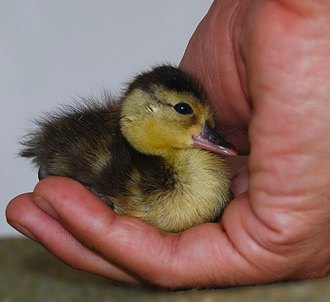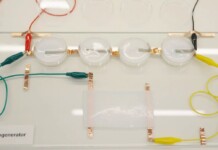 This morning a baby bird fell out of its nest just outside the window that is near my desk. I watched it tumble from the dense pillow of twigs and leaves tucked into the eaves under the deck, falling a distance of 12 feet to the cement patio below.
This morning a baby bird fell out of its nest just outside the window that is near my desk. I watched it tumble from the dense pillow of twigs and leaves tucked into the eaves under the deck, falling a distance of 12 feet to the cement patio below.
The mother bird dashed to the baby’s side, hopping in a circle around him. After a few stunned moments, the fledgling righted himself and faced her. She screeched at him, wings extended, beak thrust forward. I knew what she was saying: “Why did you sit so close to the edge? What were you doing? Wrestling with your brother? Didn’t I tell you…?”
She flew up to the nest, leaving him behind. He hopped and chirped, unharmed, I was glad to see, staring up toward the eaves. There was no way for him to get back into the nest. He was on his own.
My mind wandered to images of my youngest son, a college freshman, who had spent such long hours in his room last summer wearing headphones, listening to music and watching movies on his new laptop computer. He was my most dependent child, sitting on my lap when distressed even when his height surpassed mine by almost a foot, asking advice when performing simple tasks — “How much laundry detergent do I put in again?” — when he very well knew the answer. On the Mother’s Day card he signed last year, he wrote: “Good job raising me. I’m somewhat ready.” Was this child ready to leave the nest or did I rush him out?
My older son had made the transition to near-adulthood with only a few stumbles. When signing the lease for his first apartment, he had called home in a panic. “There’s a problem,” he reported from the rental office. “Utilities are not included.”
“So what’s the problem?” I asked.
“How will I read if there isn’t any electricity?”
An embarrassing black hole, that one. He improved quickly, displaying mostly reasonable errors in judgment. He neglected to press the lid of the blender securely into place before pressing “whip” and spent hours washing ice cream residue from the ceiling fixture in his tiny kitchen. He was challenged to an unending war against a veritable army of ants that blackened his desk hunting the sugar-coated Sour Babies he’d left scattered beside his computer.
The mother bird dropped down to the cement, dancing around her baby, chastising him with high-pitched chirps before flying away again. “Will he survive on his own?” I wondered. “Will he cry through the night?”
I closed my eyes for a moment and listened to the stillness in my house. I missed the sound of my children. I tried to conjure the sound of my son’s ever-present high-pitched, tuneless whistle that was like a beacon when he was in the house, marking his location, but there was only quiet. I looked again out that window, scanning the cement patio, but the bird was already gone.
Lisa K. Friedman is an essayist with two half-grown sons and a puppy who throws up in the car. Her work appears in the Huffington Post every Tuesday, and in the New York Times Sunday Magazine. She is the author of Nothing to Lose and Cruise to Retribution
. (Follow her on Facebook and Twitter.)




















This is fine – as far as it goes – but how is this Good News ?
It’s in our Inspiring Opinion section, so it’s not news, just like Opinion columns in the newspaper aren’t necessarily news.